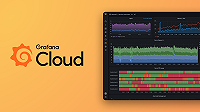discovery.docker
discovery.docker discovers Docker Engine containers and exposes them as targets.
Usage
discovery.docker "<LABEL>" {
host = "<DOCKER_ENGINE_HOST>"
}Arguments
You can use the following arguments with discovery.docker:
At most, one of the following can be provided:
authorizationblockbasic_authblockbearer_token_fileargumentbearer_tokenargumentoauth2block
no_proxy can contain IPs, CIDR notations, and domain names. IP and domain names can contain port numbers.
proxy_url must be configured if no_proxy is configured.
proxy_from_environment uses the environment variables HTTP_PROXY, HTTPS_PROXY, and NO_PROXY (or the lowercase versions thereof).
Requests use the proxy from the environment variable matching their scheme, unless excluded by NO_PROXY.
proxy_url and no_proxy must not be configured if proxy_from_environment is configured.
proxy_connect_header should only be configured if proxy_url or proxy_from_environment are configured.
Blocks
You can use the following blocks with discovery.docker:
The > symbol indicates deeper levels of nesting.
For example, oauth2 > tls_config refers to a tls_config block defined inside an oauth2 block.
authorization
The authorization block configures generic authorization to the endpoint.
credential and credentials_file are mutually exclusive, and only one can be provided inside an authorization block.
Warning
Using
credentials_filecauses the file to be read on every outgoing request. Use thelocal.filecomponent with thecredentialsattribute instead to avoid unnecessary reads.
basic_auth
The basic_auth block configures basic authentication to the endpoint.
password and password_file are mutually exclusive, and only one can be provided inside a basic_auth block.
Warning
Using
password_filecauses the file to be read on every outgoing request. Use thelocal.filecomponent with thepasswordattribute instead to avoid unnecessary reads.
filter
The filter block configures a filter to pass to the Docker Engine to limit the number of containers returned.
You can specify the filter block multiple times to provide more than one filter.
Refer to List containers from the Docker Engine API documentation for the list of supported filters and their meaning.
oauth2
The oauth2 block configures OAuth 2.0 authentication to the endpoint.
client_secret and client_secret_file are mutually exclusive, and only one can be provided inside an oauth2 block.
Warning
Using
client_secret_filecauses the file to be read on every outgoing request. Use thelocal.filecomponent with theclient_secretattribute instead to avoid unnecessary reads.
The oauth2 block may also contain a separate tls_config sub-block.
no_proxy can contain IPs, CIDR notations, and domain names. IP and domain names can contain port numbers.
proxy_url must be configured if no_proxy is configured.
proxy_from_environment uses the environment variables HTTP_PROXY, HTTPS_PROXY, and NO_PROXY (or the lowercase versions thereof).
Requests use the proxy from the environment variable matching their scheme, unless excluded by NO_PROXY.
proxy_url and no_proxy must not be configured if proxy_from_environment is configured.
proxy_connect_header should only be configured if proxy_url or proxy_from_environment are configured.
tls_config
The tls_config block configures TLS settings for connecting to the endpoint.
The following pairs of arguments are mutually exclusive and can’t both be set simultaneously:
ca_pemandca_filecert_pemandcert_filekey_pemandkey_file
When configuring client authentication, both the client certificate (using cert_pem or cert_file) and the client key (using key_pem or key_file) must be provided.
When min_version isn’t provided, the minimum acceptable TLS version is inherited from Go’s default minimum version, TLS 1.2.
If min_version is provided, it must be set to one of the following strings:
"TLS10"(TLS 1.0)"TLS11"(TLS 1.1)"TLS12"(TLS 1.2)"TLS13"(TLS 1.3)
Exported fields
The following fields are exported and can be referenced by other components:
Each target includes the following labels:
__meta_docker_container_id: ID of the container.__meta_docker_container_label_<labelname>: Each label from the container.__meta_docker_container_name: Name of the container.__meta_docker_container_network_mode: Network mode of the container.__meta_docker_network_id: ID of the Docker network the container is in.__meta_docker_network_ingress: Set totrueif the Docker network is an ingress network.__meta_docker_network_internal: Set totrueif the Docker network is an internal network.__meta_docker_network_ip: The IP of the container in the network.__meta_docker_network_label_<labelname>: Each label from the network the container is in.__meta_docker_network_name: Name of the Docker network the container is in.__meta_docker_network_scope: The scope of the network the container is in.__meta_docker_port_private: The private port on the container.__meta_docker_port_public_ip: The public IP of the container, if a port mapping exists.__meta_docker_port_public: The publicly exposed port from the container, if a port mapping exists.
Each discovered container maps to one target per unique combination of networks and port mappings used by the container.
Note
Alloy sanitizes Docker label names in
__meta_docker_container_label_<labelname>and__meta_docker_network_label_<labelname>to comply with Prometheus label naming requirements. The component converts dots and other non-alphanumeric characters to underscores. Underscores remain unchanged. For example, a Docker labelcom.example.app.namebecomes__meta_docker_container_label_com_example_app_name.
Component health
discovery.docker is only reported as unhealthy when given an invalid configuration.
In those cases, exported fields retain their last healthy values.
Debug information
discovery.docker doesn’t expose any component-specific debug information.
Debug metrics
discovery.docker doesn’t expose any component-specific debug metrics.
Examples
Linux or macOS hosts
This example discovers Docker containers when the host machine is macOS or Linux:
discovery.docker "containers" {
host = "unix:///var/run/docker.sock"
}
prometheus.scrape "demo" {
targets = discovery.docker.containers.targets
forward_to = [prometheus.remote_write.demo.receiver]
}
prometheus.remote_write "demo" {
endpoint {
url = "<PROMETHEUS_REMOTE_WRITE_URL>"
basic_auth {
username = "<USERNAME>"
password = "<PASSWORD>"
}
}
}Replace the following:
<PROMETHEUS_REMOTE_WRITE_URL>: The URL of the Prometheus remote_write-compatible server to send metrics to.<USERNAME>: The username to use for authentication to theremote_writeAPI.<PASSWORD>: The password to use for authentication to theremote_writeAPI.
Windows hosts
This example discovers Docker containers when the host machine is Windows:
Note
This example requires the “Expose daemon on tcp://localhost:2375 without TLS” setting to be enabled in the Docker Engine settings.
discovery.docker "containers" {
host = "tcp://localhost:2375"
}
prometheus.scrape "demo" {
targets = discovery.docker.containers.example.targets
forward_to = [prometheus.remote_write.demo.receiver]
}
prometheus.remote_write "demo" {
endpoint {
url = "<PROMETHEUS_REMOTE_WRITE_URL>"
basic_auth {
username = "<USERNAME>"
password = "<PASSWORD>"
}
}
}Replace the following:
<PROMETHEUS_REMOTE_WRITE_URL>: The URL of the Prometheus remote_write-compatible server to send metrics to.<USERNAME>: The username to use for authentication to theremote_writeAPI.<PASSWORD>: The password to use for authentication to theremote_writeAPI.
Compatible components
discovery.docker has exports that can be consumed by the following components:
- Components that consume Targets
Note
Connecting some components may not be sensible or components may require further configuration to make the connection work correctly. Refer to the linked documentation for more details.



